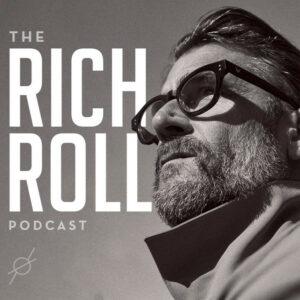
In the “Hidden Brain Podcast” episode “The Paradox of Pleasure,” the host explores the complex nature of addiction and the ways it manifests in various aspects of our lives. From drug addiction to online shopping and even romance novels, addiction can take many forms and impact individuals from all walks of life. Through personal stories and expert insights, this episode sheds light on the underlying mechanisms of addiction and the challenges individuals face in seeking help.
Contrary to popular portrayals, addiction is not limited to drug-related scenarios involving violence and crime. It encompasses a much broader range of experiences, including depression, anxiety, chronic pain, and even seemingly harmless activities like online shopping and reading romance novels. Addiction is not solely about the substance itself, but also the pleasure it provides and the pain it alleviates. Recognizing the interconnectedness of different types of addiction is crucial in understanding the underlying mechanisms and seeking appropriate help.
Addiction can manifest in various areas of life, affecting individuals regardless of their external success or apparent happiness. High-level athletics can provide a cycle of intensity that brings happiness and engagement, but the end of a sports career can lead to disappointment and an identity crisis. Hobbies like fantasy football can spark an interest in sports betting and gambling, which, when combined with the accessibility of online platforms, can lead to addiction and financial troubles. Online shopping addiction can become a physiological crutch for managing mood, resulting in excessive spending and credit card debt. Similarly, pornography addiction can escalate over time, leading individuals to seek out more potent forms and engage in risky behavior.
Our brain is wired to seek pleasure and avoid pain, with dopamine playing a crucial role in motivating us to pursue rewards. However, the brain also works to restore balance, tilting towards pain after experiencing pleasure. This mechanism, known as the pleasure-pain seesaw, can contribute to addiction. In our modern environment, where pleasure is readily accessible and often excessive, our ancient wiring is mismatched, leading to addiction and down-regulation of our own dopamine production. This constant craving for pleasure can result in anxiety, irritability, and depression, creating what is known as the plenty paradox.
Modern societies have “drugified” normal healthy things like food, social connection, and sexual intimacy. The quantity, availability/accessibility, and potency of various substances and behaviors contribute to addiction. Companies constantly package things as slightly new or different to maintain customers, exploiting the brain’s sensitivity to novelty. This toxic combination of societal influences and our innate wiring can lead to compulsive overconsumption and mental health issues.
Recognizing the connections between different types of addiction and seeking help from professionals, such as psychiatrists, is crucial in addressing addiction. Additionally, adopting practices like “hygge” (a Danish concept of coziness and comfort) and “forest bathing” (spending time in nature for improved mental health) can provide alternative sources of well-being and help combat stress and anxiety.
The “Hidden Brain Podcast” episode “The Paradox of Pleasure” delves into the multifaceted nature of addiction and its impact on various aspects of our lives. Addiction goes beyond the stereotypical portrayals seen in media and can affect individuals from all walks of life. By understanding the underlying mechanisms of addiction, recognizing its presence in different areas of life, and seeking appropriate help, we can navigate the complexities of addiction and strive for a balanced and fulfilling life.